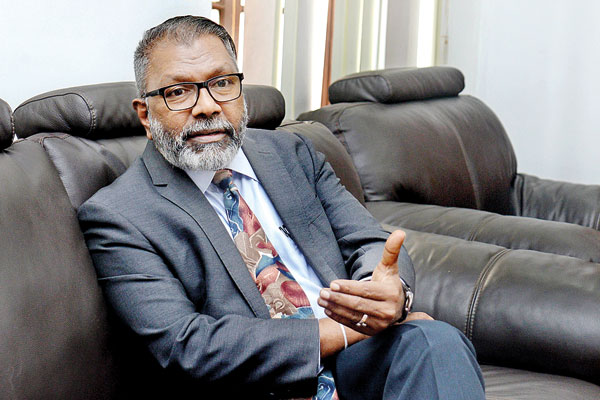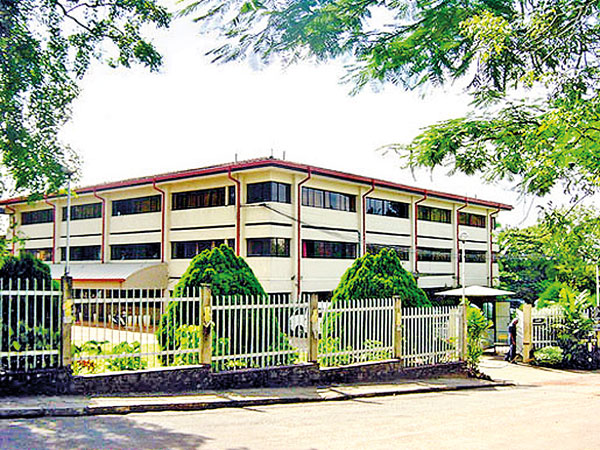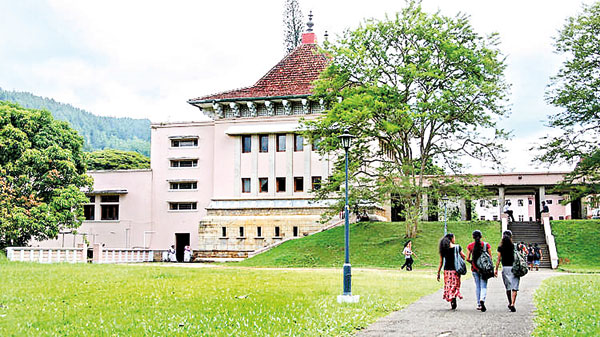News
Causes of university rights abuses deep-rooted
View(s):By Yoshitha Perera
There are student care officials, university marshals, counsellors, proctors, senior marshals, and academic bodies looking into ragging issues.
“I met all the state university marshals and asked them whether they had received any training to handle ragging and to counsel students. They said no,” Dr. Raghavan said.

Dr. Suren Raghavan. Pic by Eshan Fernando
Recent incidents at the Peradeniya and Kelaniya universities have brought this issue to the forefront once more. Unless drastic measures are taken, extreme forms of ragging will continue.
Dr. Raghavan said a disconnect at all state universities and lack of a uniform mechanism had been identified as major issues.
“If we take the extreme example of Peradeniya University, faculties are spread out over 1,000 acres of land, and their mechanism of monitoring and managing or reducing ragging is much more difficult than in Colombo, which is only about 15 acres,” he said.
Dr. Raghavan said that while universities had adopted their own models, they were ineffective.
In the past five years, the police and the university system have received nearly 3,500 complaints about ragging but only few had been investigated and acted on.

Ragging captures headlines when things really go bad or cost lives. However, ragging has been apparently identified as a subculture and in 1998 an Anti-Ragging Law was enacted by Parliament.
“This issue has been in the university system for a long time and that has gone deep rooted over the past four to five decades. Such an issue becomes prolonged, of course, it will eventually become a subculture.
“The fundamental issue the University Grants Commission and the State Ministry finds is that the students who are harassed and some part of academia who are aware are not willing to make complaints,” he said.
According to Dhanushka Weerasekara, an anti-ragging activist, university administrations are required to take stronger measures under the 1998 law.
“The administration should establish guidelines and adhere to the Act. It has the same impact as the Prevention of Terrorism Act. According to the Ragging Act, two complaints must be filed: one by the student and one by the university,” he explained.

Recent incidents at the Peradeniya (above) and Kelaniya (below) universities have brought the issue of ragging to the forefront once more
In its conclusion, a report by the University Grants Commission appointed committee in 2020 outlined 10 points. The panel was appointed to redress victims of ragging and to provide a regulatory mechanism to prevent ragging related abusive behaviour in state universities and higher educational institutions.
The committee, led by former Supreme Court Judge Dr. Saleem Marsoof detailed regulatory measures.
The 10 points explained that ragging is a manifestation of prevailing social conditions and issues that are beyond the committee’s purview.
The main responsibility for preventing ragging in universities and other higher educational institutions rests solely with these universities and institutions.
The UGC, as well as academic institutions, should develop policies and procedures to eliminate ragging and ensure proper compliance.
The report also said that security and discipline should be strengthened and that the leaders of institutions should create incentives for compliance and disincentives for non-compliance.
| Porn-sharing as ragging: Complaint against Pera students By Shane Seneviratne A group of senior students allegedly sent pornographic videos to junior students they had ragged, according to a police complaint made by the Peradeniya University authorities. The Tamil medium senior students from the Allied Health Science Faculty sent the pornographic clips via WhatsApp to the Tamil medium freshers from the same faculty, police said. They said the junior students had complained to a member of the university’s disciplinary committee. The data collected from their phones had been sent to the Central Province Cyber Crime Division. Deputy Vice-Chancellor Prof. Terence Madujith said disciplinary action would be taken against the students, depending on the outcome of the policy inquiry. | |
The best way to say that you found the home of your dreams is by finding it on Hitad.lk. We have listings for apartments for sale or rent in Sri Lanka, no matter what locale you're looking for! Whether you live in Colombo, Galle, Kandy, Matara, Jaffna and more - we've got them all!

